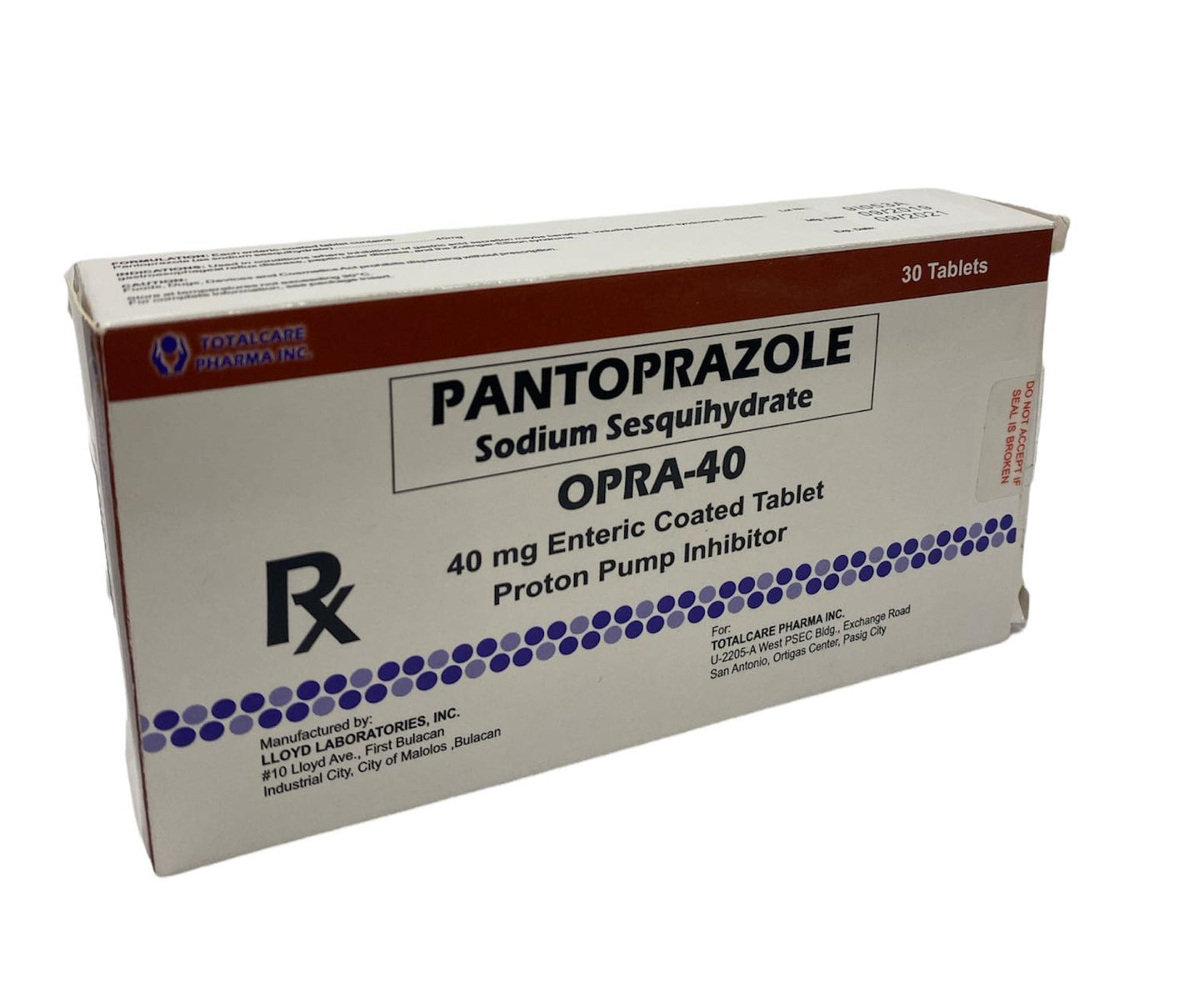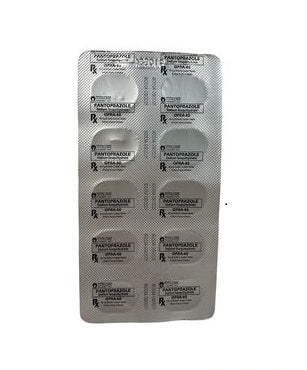Opra (Pantoprazole)
Opra (Pantoprazole)
Couldn't load pickup availability
Action
Pantoprazole, is a proton pump inhibitor that decreases gastric acid secretion. The mechanism of action of pantoprazole is to inhibit the final step in gastric acid production. In the gastric parietal cell of the stomach, pantoprazole covalently binds to the H+/K+ ATP pump to inhibit gastric acid and basal acid secretion. The covalent binding prevents acid secretion for up to 24 hours and longer.
Indication
Pantoprazole is used for short-term treatment of erosion and ulceration of the esophagus for adults and children five years of age and older caused by gastroesophageal reflux disease(GERD), maintenance of healing of erosive esophagitis, and pathological hypersecretory conditions including Zollinger–Ellison syndrome. It can be used as a maintenance therapy for long-term use after initial response is obtained, but there have not been any controlled studies about the use of pantoprazole past a duration of 12 months. Pantoprazole may also be used in combination with antibiotics to treat ulcers caused by Helicobacter pylori. It can also be used for long-term treatment of Zollinger-Ellison syndrome. It may be used to prevent gastric ulcers in those taking NSAIDs. Pantoprazole is only indicated for the short-term treatment of erosive esophagitis in children ages seven and older; and the safety and effectiveness of pantoprazole have only been established in the treatment of erosive esophagitis in children.
Dose
It is available by mouth and by injection into a vein.
Pregnancy & Lactation
Use in pregnancy appears to be safe. In reproductive studies using doses largely greater than the recommended doses performed on rats and rabbits, there was no evident harm on the development of the baby. Pantoprazole has been found to pass through the breast milk. However, in rodent cancer studies, pantoprazole has been shown to potentially cause tumor growth. The clinical relevance of the finding is unknown, but risks and benefits are recommended for consideration in determining the use of therapy for the mother and child.
Adverse Reaction
Common side effects include headaches, diarrhea, vomiting, abdominal pain, and joint pain.[4] More serious side effects may include severe allergic reactions, a type of chronic inflammation known as atrophic gastritis, Clostridium difficile colitis, low magnesium, and vitamin B12 deficiency.
Interaction
Due to its effect of reducing stomach acidity, use of pantoprazole can affect absorption of drugs that are pH-sensitive, such as ampicillin esters, ketoconazole, atazanavir, iron salts, amphetamine and mycophenolate mofetil.
Content
Content
Share





